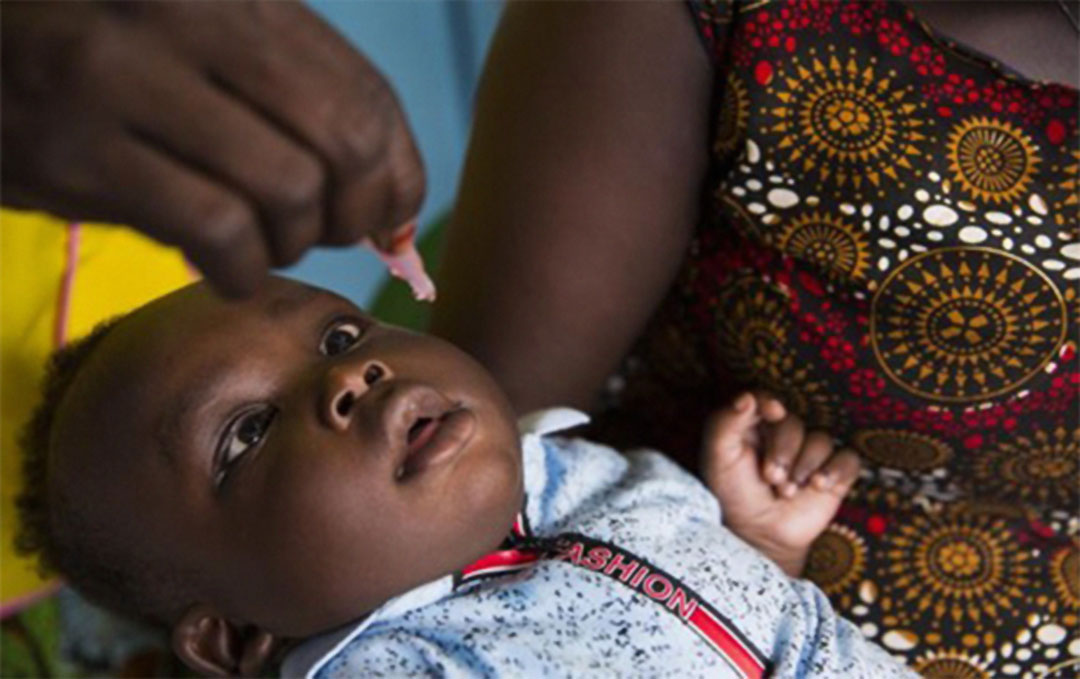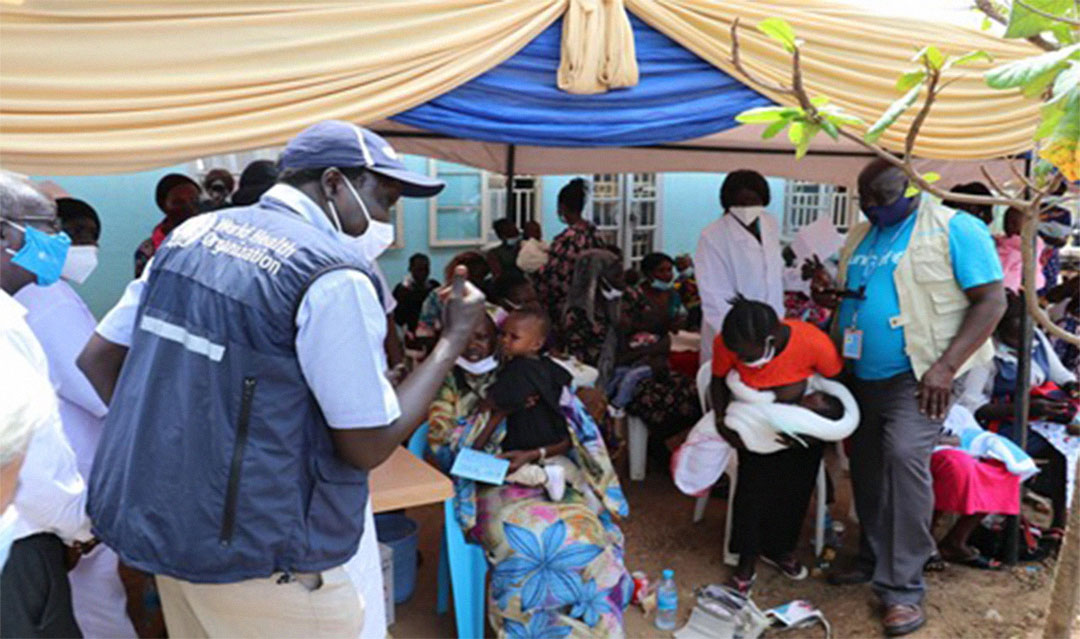South Sudan committed to polio vaccination campaign in its remote areas
South Sudan has reignited the drive to vaccinate its children against the polio virus.
- 12 January 2022
- 4 min read
- by Deng Daniel Ngor

Even before COVID-19, South Sudan faced enormous challenges in conflict-related insecurity and communal clashes, widespread population displacement, and perennial flooding. When the pandemic started, the country’s ability to deliver immunisation coverage fell even more, exacerbating children’s vulnerability to the polio virus, especially in hard-to-reach areas such as Jonglei State.
In response to the current polio outbreak, the country plans to conduct a nationwide first round of the mOPV2 campaign starting in early 2022. The target is to reach 4.5 million children aged 0 – 59 months by March 2022 after 1.1 million were vaccinated across the country in December 2021.
In December 2021, the Ministry of Health and partners had started a second-round polio vaccination campaign. It covered six counties of Jonglei State and targeted children aged 0 – 59 months, with vaccinators going from door to door to vaccinate children, while adhering to COVID-19 protocols.
“We must ensure all children are taken for routine immunisation, which includes the polio vaccine, so that the infection doesn’t happen when the outbreak is curbed.”
In Bor Town, the capital of Jonglei State, the objective was to vaccinate 30,000 children against polio, to add to the 67,000 who were vaccinated in the first vaccination round conducted in March 2021.

Photo credit: WHO
Across the state, less than half of all children were immunised against polio, making them vulnerable to type 2 circulating vaccine-derived poliovirus and putting them at risk of life-long disability and death. About 39 cases of vaccine-derived poliomyelitis were confirmed in Bor South and Duk Counties, leading to the second vaccination drive in the area.
“Monovalent Oral Poliovirus Type 2 (mOPV2) campaign will not only stop the outbreak but ensure that Jonglei State remains polio-free while improving the routine immunisation coverage”, says Dr Atem Chol, Director General for Primary Health Care at the Ministry of Health in Bor.
Mobile vaccination teams
“I am encouraging all caregivers to allow their children to be vaccinated by house-to-house teams,” he adds.
To stop the outbreak and prevent further spread, the Ministry of Health, WHO and UNICEF, amongst other partners, are enhancing surveillance with emphasis placed on both community and health facilitators undertaking a case search for children who may have developed sudden paralysis of the limbs. This case finding has been happening alongside strengthened investigation and timely transportation of samples to the laboratory.
Have you read?
“The campaign provides an opportunity for the vulnerable children to receive critical interventions that can avert life-threatening disease such as disability from poliomyelitis,” says Dr Olushayo Olu, WHO Jonglei State Field Coordinator.

Photo credit: WHO
Raising awareness
Jonglei State is also intensifying its dissemination of messages through diverse channels, such as community influencers, radio talk shows, household outreach and focused group meetings, megaphone announcements and posters demonstrating the importance of vaccination.
“To keep every child protected, delivery of safe vaccines, along with the commitment of parents, caregivers and health workers that lead to the virus’s eradication in South Sudan counties must continue across the country. Immunisation is a must and complacency can kill,” says the UNICEF’s Deputy Country Representative for South Sudan, Andrea Suley.
“We must ensure all children are taken for routine immunisation, which includes the polio vaccine, so that the infection doesn’t happen when the outbreak is curbed,” she adds.
Suley stresses a need to sensitise communities in South Sudan on polio vaccination in a bid to make it a success for all children.
“To turn this vaccination campaign into a success, we need to ensure that parents are fully aware of the importance of the vaccination and ask for their children to get the vaccine. Therefore, communication activities are critical,” she concludes.
Elizabeth Poni, who had her children vaccinated urges parents to take their children for polio vaccination, whether it is the first or second dose. “I encourage all my fellow parents – it is safe for their children to receive an additional dose and we want to make sure every child is protected from polio,” she says.
More from Deng Daniel Ngor
Recommended for you





